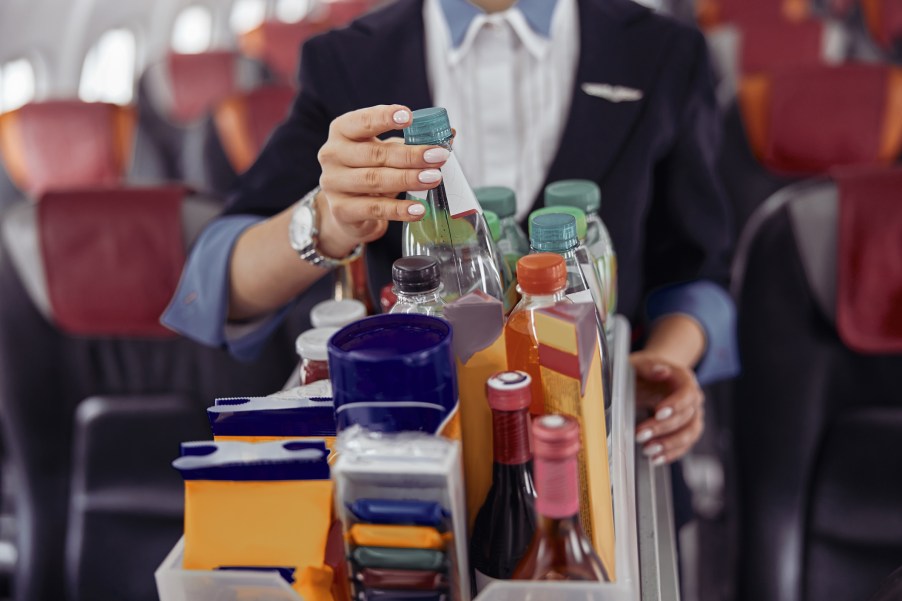
Doing This Relaxing Activity While Flying Will Destroy Your Heart
You don’t have to argue with me about how having an adult beverage during a flight is relaxing. Even if the drinks are overpriced, after getting to the airport, going through security, and finding your gat through the crowds, a cold drink is great. But drinking on an airplane could be bad for your heart.
Drinking on an airplane could be unhealthy
Recently, German scientists performed a study to discover how drinking on an airplane can impact your health, and the results are concerning.
Basically, while flying, the low air pressures can cause your oxygen saturation levels to drop to concerning levels and increase your heart rate, even if you’re young and/or healthy.
As you cruise between 6,000 to 8,000 feet above sea level, air pressure decreases and the amount of oxygen you pull with each breath decreases.
Doctor Eva-Maria Elmenherst explained that they expected this to have a mild impact on passengers, but they were surprised by how strong the effects of drinking at low air pressure are.

The reduced oxygen levels combined with an increased heart rate can worsen pre-existing medical conditions such as heart disease, stroke, and blood clots. To make matters worse, blood clots could form due to sitting still in the airport or during your flight.
The study involved pairing people off into three groups of 12. One group had two beers, one group had two glasses of wine, and the third group stuck to water before sleeping. After two days the roles were reversed.
After drinking, the participants went to sleep and experienced a blood oxygen saturation drop to 85% and their heart rate levels rose to 88 beats per minute to compensate for the lack of oxygen.
When people went to sleep sober, their blod oxygen saturation levels only dropped to 95%, and their heart rate only rose to 77 beats per minute. Any oxygen saturation level below 90% is dangerous.
Longer flights and the more alcohol you consume will increase these risks. But if people without any health issues want to drink on an airplane, they should only have one.



